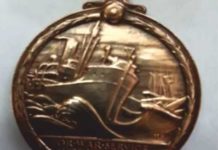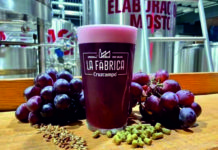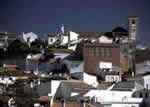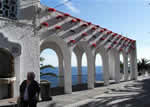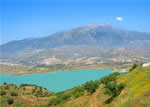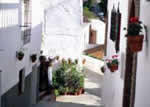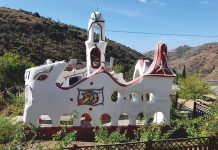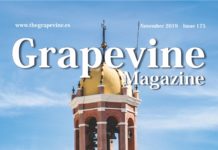Spain is a country with a well known Catholic tradition. The carnival is, therefore, celebrated before the 40 days of Lent as a way to let loose before the prohibitions of the upcoming religious holidays. Most Andalucian towns stage some kind of parade, and there is usually a dance and a “Carnival Queen” contest.
Most towns celebrate the carnival with processions either the weekend before or after the above dates. Cities and larger towns have festivities lasting all week or longer.
The carnival is a “fiesta of the people”. It is a reaction against abstentions and prohibitions of all types. Just submerging yourself in the carnival celebrations is enough to make you feel the dramatic break with social order that carnival goers achieve. It is also an opportunity to let go of all inhibitions and to help out in this department, everyone is encouraged to wear masks and fancy dress.
Not surprisingly, during the Spanish Civil War, General Franco abolished the Carnival in rebel areas. And after the war, of course, there was still much opposition to the Carnival, so Franco abolished it once again from 1937.
However, in true Spanish style, the celebrations continued in Cadiz and some other towns namely:
Ayamonte
Isla Cristina
Fuentes de Andalucia
Trabujena
Benamahoma
In addition to the world famous Cádiz carnival you will also find celebrations throughout the province of Cádiz as well as the other seven provinces of Andalucia.
CÁDIZ
Outside of Cádiz capital, carnivals take place throughout the province. The Puerto de Santa María carnival, for example, is a major event. This town is most famous for its “Comparsas” singing groups and many of them also participate in the big provincial contest held at the Teatro Falla in Cádiz. As in other places, everyone dresses up for the festivals and there is a parade on the last day. Rota, San Fernando, Chiclana, Algeciras, Medina-Sidonia and Trebujena all have lavish carnivals. Isla Cristina and Ayamonte, are also famous for their elaborate costumes and excitement, drawing visitors from throughout the region and the other side of the Portuguese border as well.
CÓRDOBA
The city of Córdoba has a recipe all its own when it comes to the carnival. Whereas it is common to elect a King and Queen of the carnival, in Córdoba history is honoured with the selection of a Sultan and a Sultana. If you are a fan of carnival celebrations, this is definitely one corner of Andalucia worth exploring this time of year.
JAEN
The City of Jaen organises a full calendar of carnival events. This is a carnival with six centuries of history behind it with a man named Condestable Iranzo credited with founding the events in this part of Andalucia. As in other areas, it was prohibited for many years during Franco’s rule of Spain, but today the Jaen Carnival is going strong.
The carnival in Jaen capital tends take place close to Shrove Tuesday while those in the provincial towns and villages area often scheduled quite a bit after that day. If you wish to take part in Jaen carnivals, start checking in January with the culture departments of the town halls you wish to visit.
GRANADA
The Granada Carnival, along with those of the provincial towns, are among the least publicised, but they do take place. The festival usually lasts about a week in the provincial capital and starts well after Shrove Tuesday. It includes the usual singing contests that are held in theatres and other venues. There is also plenty of activity in the streets of Granada (a city that is famous for its “tapa” appetisers that accompany drinks at no extra charge), including a parade.
HUELVA
The Huelva carnival is one of the biggest in Andalucia and is known as the Columbian Carnival, in honour of Christopher Columbus, who sailed from Huelva to discover the New World. The Huelva carnival closed down during Franco’s prohibition and it took a few years to start it up again, even after democracy overtook the country. It was not, therefore, until 1983 that this carnival re-started after a long sleep.
The Huelva Federation of Clubs and Carnival Associations (Federación Onubense de Peñas y Asociaciones de Carnaval (FOPAC) is responsable for organizing this exciting event for the capital of Huelva, which – like Cádiz – hosts a major contest for all the different genres of carnival singers. The Huelva carnival singing contest has been known to attract up to 70 different groups from Huelva, Cádiz and the rest of Andalucia.
MÁLAGA
From 1937 to 1977, the people of Málaga kept their costumes packed away and refrained from meeting to practice and enjoy the old carnival tunes together – much less organise any traditional parades or other celebrations. This was due to the prohibition issued by Franco and strictly enforced in this area.
In 1978 with democracy a spanking new concept in Spain, the people of Málaga took back their carnival, dusting off old sheet music, putting together dashing new costumes and asking the old timers to help them remember how their traditional carnival was celebrated before the prohibition.
Today this festival is stronger than ever, with a special foundation dedicated to organising and promoting the event. There are numerous musical activities as well as special events for children, costume contests, a parade and, of course, fireworks to send the carnival out with a bang. The Málaga carnival calendar usually begins about a month before Shrove Tuesday and spreads performances out over the whole four week period with events heating up as they near the actual carnival dates.
SEVILLE
The city of Seville is known to dedicate February to carnival celebrations with all the usual song and dance performances. A well known savings bank always brings in the top performing Carnival singing group from the Cádiz festival for a special performance. There is also a children’s carnival that can be scheduled on the weekends for up to a whole month.
The town of Pedrera in Seville province is known for its carnival with the entire village dressing up on Ash Wednesday for the traditional “burial of the sardine”. Other Seville province towns known for their carnival celebrations are: Alcalá de Guadaíra, Carmona, Coria del Rio, Dos Hermanas, Fuentes de Andalucía and Gines.
Source andalucia.com





